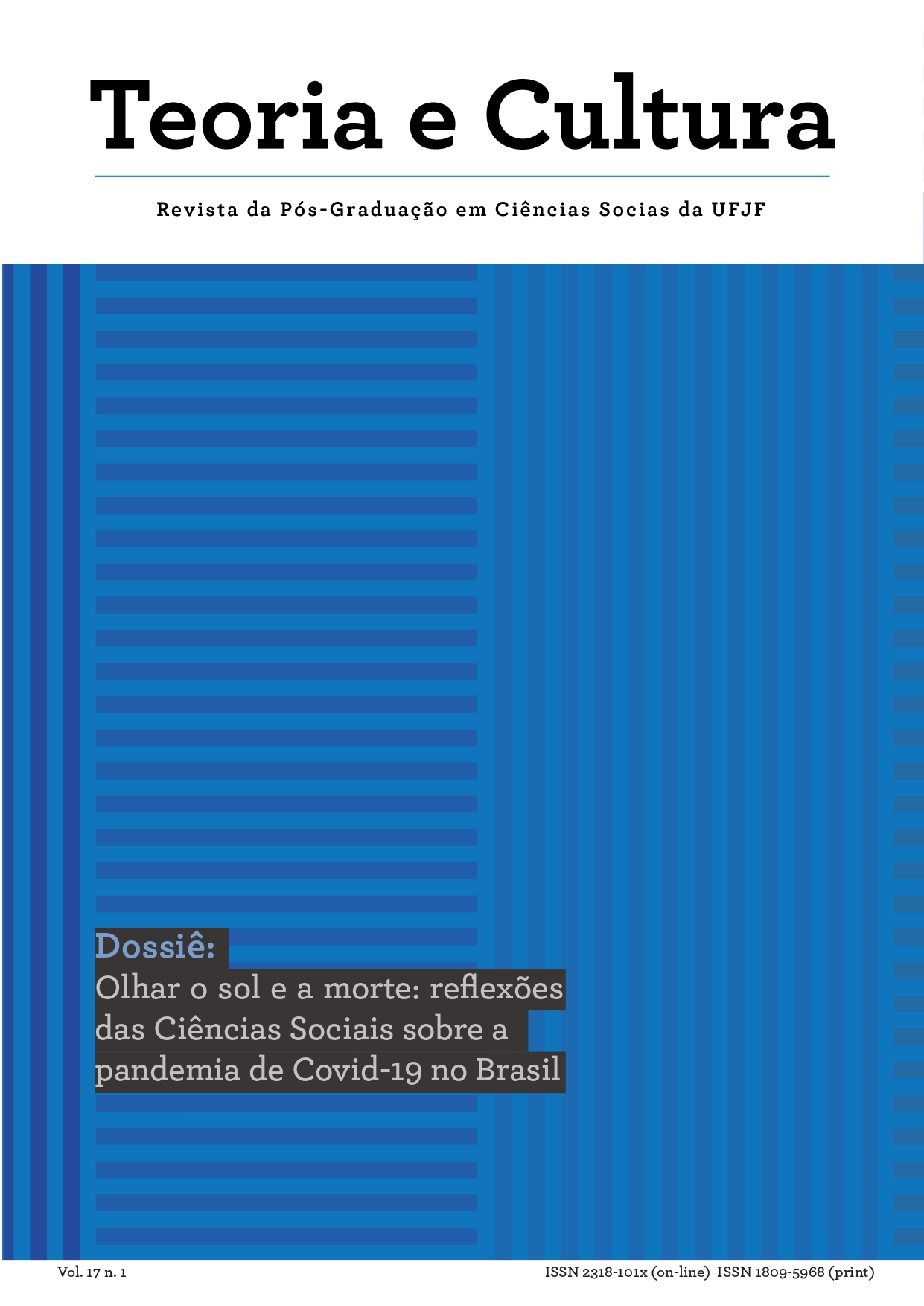Políticas de vida e morte:
a redução do valor dos corpos e o aumento das precariedades humanas no primeiro ano de pandemia
DOI:
https://doi.org/10.34019/2318-101X.2022.v17.34549Resumo
Neste ensaio rememoramos alguns acontecimentos violentos ocorridos no Brasil durante o primeiro ano de pandemia da Covid-19, propondo reflexões que inquirem o valor dos corpos na sociedade brasileira, bem como os padrões de desigualdade decorrentes das hierarquias de gênero e do racismo institucional. Compreendemos, especialmente a partir do pensamento de Judith Butler (2018), que a vulnerabilidade é uma condição intrínseca à vivência coletiva. Entretanto, entendemos que esta condição pode ser agravada por imposições advindas das novas tramas que os diferentes marcadores sociais da diferença ganham em situações especiais (MELO, MALFITANO, LOPES, 2020), como a pandemia, por exemplo. Inicialmente, abordamos o ficar em casa para fazer isolamento social como fator de destaque no aumento de casos de feminicídio e violência intrafamiliar, colocando em perspectiva o sistema patriarcal (CONNEL, 2015) e a cultura da violação (SEGATO, 2003). Posteriormente, discutimos a violência que atinge certos corpos e territórios, abordando a lógica institucionalizada do racismo (SODRÉ, 2018; GONZALES, 1980; MOMBAÇA, 2016, 2020), e a produção de teatralidades da morte (DIÉGUEZ, 2013). Buscamos elaborar uma argumentação que articule as violências hierárquicas a uma noção de valor (BUTLER, 2018; SEGATO, 2003; FERREIRA da SILVA, 2019) atravessada pelas políticas da morte (MBEMBE, 2018).








